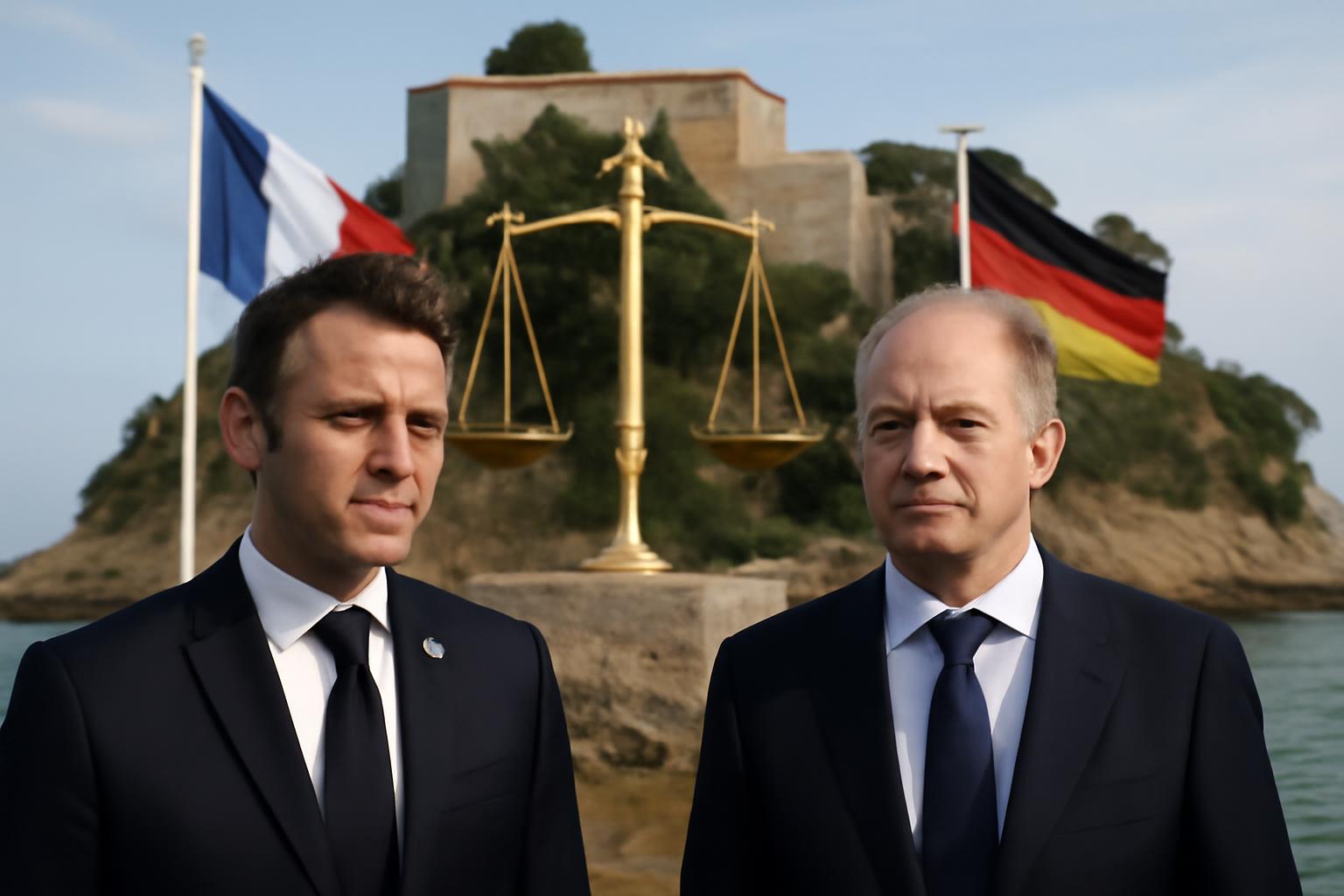A high-stakes rendezvous at Fort Brégançon was arranged to test the closeness of the Franco-German axis, a gesture meant to signal unity even as their two domestic politics trembled. The French scene is frayed: the prime minister announces a confidence vote that could topple his government if there is no political turnaround, while concerns about debt and instability gnaw at the surface of national confidence. The timing of the gathering was jolted by this internal tremor, dimming the aura of a dazzling Côte d’Azur moment. In Berlin, some observers warn that from the German vantage point France looks less reliable amid its inner conflicts, even if Macron and Merz retain a personal rapport. Earlier discussions in the German capital touched on ambitious but delicate topics—from a ministerial council to advanced military projects—but officials insist that such matters will not be the focus in Toulon; the aim is to present a meaningful but restrained symbol of partnership rather than a grand policy reveal. Analysts have pointed to enduring frictions on arms co-production, handling of Israel, and the US tariff dispute, suggesting that the honeymoon is over even as hopes for close cooperation persist. The invitation itself—an honour long reserved for the most esteemed guests—renders the event as much a symbol of esteem as a test: will a functional partnership endure political volatility at home?
What we are witnessing is not merely a photo-op between two charismatic leaders, but a revealing experiment in the durability of liberal order under strain. The longing for a seamless Franco-German motor of Europe runs headlong into the stubborn reality of plural sovereignty, where each nation must live with the consequences of its own choices, political cycles, and budgetary discipline. To mistake a personal rapport for a stable architecture is to mistake the necessity of rules for the charm of personalities. The French political class speaks of debt and instability as if these were mere inconveniences that could be solved by charisma and ceremonial warmth; the Germans, rightly cautious, remind us that credibility is earned through predictable institutions, not by the cadence of a summit’s choreography. A partnership built on symbolic gestures, however commendable in its sentiment, remains vulnerable to the weather of domestic politics, to sudden shifts in public opinion, and to reforms postponed until crisis pushes them forward.
The deeper friction over arms co-production, Israel, and trade disputes reveals a fundamental truth: long-distance cooperation rests on shared, defendable interests that can withstand the pull of national politics. It cannot be sustained by a postponement of hard choices, nor by a presumption that trust is a substitute for formal commitments and stable governance. If Europe hopes to harness the energy of its most ambitious alliance, it must ground its cooperation not in the luster of a summit invitation but in the steady hum of competitive markets, robust rule of law, and institutional restraint. The goal should be to cultivate a spontaneous order wherein cooperation arises from commonplace checks and incentives—the kind of order that emerges when governments and markets alike are compelled to justify themselves before the people and under the law, rather than before the sentiment of a moment’s diplomacy.
Thus the Fort Brégançon moment becomes a sobering test of a European ideal: that two great nations can align not merely by the force of personalities but through credible commitments that survive the turbulence of domestic politics. If the French resolve to blend fiscal prudence with political resolve and if the Germans maintain steadiness without surrendering principled skepticism, a durable partnership could still emerge. But if the glue of personal rapport is mistaken for the strength of institutions, or if grand gestures replace the slow, exacting work of reform, the symbolic kiss will dissolve into a hollow echo. The measure of Europe’s future is not the warmth of a single summit, but the resilience of its rules, the discipline of its budgets, and the enduring trust that liberty—the sober anchor of civilization—requires.
